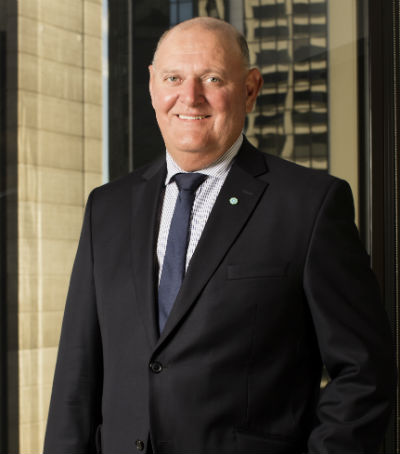In august 2014, Resilium Insurance Brokers (RIB) was established. A subsidiary of Resilium, the
Suncorp-owned authorised representative distributor, it operates through an AR network providing insurance broking services.
Greg Arms has led RIB since day one. He’s an insurance industry veteran with over 30 years’ experience, encompassing time in the general insurance, life insurance and financial planning sectors. Before joining RIB, Arms was general manager of partner development at
Austbrokers, where he worked for 17 years.
Back at the end of 2014, it was Brisbane-based Goldsworthy Investments that became the first business to sign up to RIB.
“At the end of the [last] financial year … we had 146 practices under our licence,” Arms tells
Insurance Business.
RIB works to provide a one-stop shop that ensures that customers’ coverage needs are addressed through RIB or its parent company, Resilium.
“We have our own brand of product plus the ability to go out and sell into the marketplace as a broker,” Arms says. He also talks about how RIB supports its network of ARs.
“Because of our parentage, we’ve been able to provide our ARs with a steady stream of leads…
“We have our own brand of product plus the ability to go out and sell into the marketplace as a broker”
[In] June, we provided the group with 1,000 leads … We provide them with people who want insurance,” he says.
“That doesn’t happen every month, but it certainly happened in June. We’re actually putting money in their pocket, rather than taking money from them.”
Arms also says that, as a licensee, RIB works with its ARs to make sure they provide them with what they’re looking for.
“It’s not just about the dollars,” he says. “The dollars are part of it, but it’s also about giving them the education [and] giving them the ability to develop.”
Arms agrees that ARs are becoming an increasingly important part of the insurance landscape in Australia.
“The guys that want to become ARs are actually looking to grow their own practice, grow their own future, and give themselves a nest egg to retire with,” he says.
“As an AR, the entry cost is not high compared to buying into a broker … A good part about insurance broking is that if you do it well, you can make a lot of money. But to buy in costs a lot of money.”
Arms points out that when it comes to younger insurance professionals, who may be paying off mortgages and supporting growing families, enough spare cash to buy into broking may be hard to find.
“By becoming an AR, you can start off at a relatively low cost and get all the benefits of being in a large practice at the same time,” he says.
GREG ARMS TALKS BROKERS AND TECHNOLOGY
The role of technology in the brokerages of tomorrow remains a hot topic of conversation. So, how important does Greg Arms think it is for brokers to be utilising new technologies in their businesses?
“I think that’s just part of the evolution of the business,” he says.
“Technology is going to have a significant influence, and brokers need to move with it and still show their value by giving their clients advice, but also using technology to their advantage to provide that advice and to give their customers what they’re actually looking for.”
Insurance Business asks Arms whether there are any new or emerging risks he sees as offering significant opportunities to SME brokers.
“I think the one that’s probably on everyone’s lips is cyber,” he says. “I think … there’s a limited understanding from all sectors, whether it be client all the way to insurer, of how it needs to be sold and what price is appropriate.
“Cyber is going to be something that everyone should be considering. It is going to be part of our landscape.”
RIB FAST FACTS
Servicing: SMEs, particularly in local communities
Year founded: 2014
Number of brokers and ARs: 146 practices
Headquarters: Sydney
Leadership: Greg Arms, managing director; Angela O’Neil, senior account manager; Mark Wilson, training and transition coordinator; and Michael Maksoud, transition and training manager
Arms also discusses what his focus will be at RIB over the next 12 months.
“Growth is still very important to us; we’re only two years old, so we still have to grow the practice,” he says.
“When we started two and a half years ago, we made some promises to our stakeholders, our insurance partners, and we’ve been able to follow through with that. We want to continue to build our relationships, to continue with the education of our ARs and make sure that they are in the best possible position to give the best advice that they can to their clients, and we want ARs to build solid businesses so that we have long-term partners going forward as well.”


